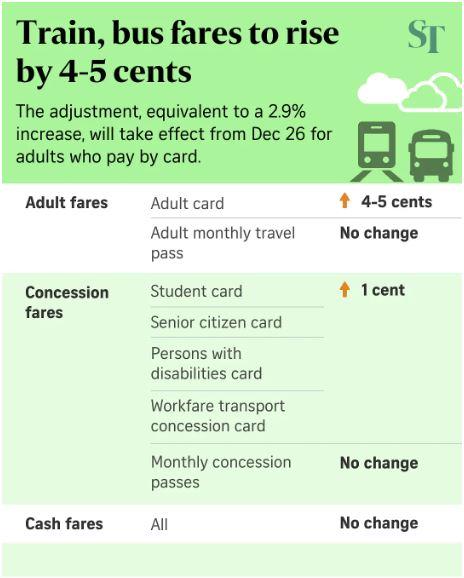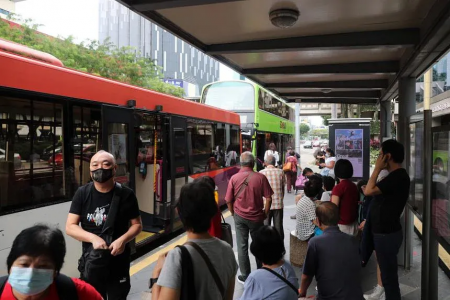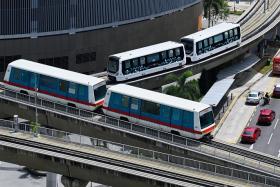600,000 transport vouchers to help lower-income households cope with fare rise
A total of 600,000 public transport vouchers worth $30 each will be available for lower- to lower-middle-income households from Dec 28.
The vouchers are meant to help these households cope with the 2.9 per cent fare increase that will kick in from Dec 26, said the Ministry of Transport (MOT) on Wednesday. Adults will pay 4 to 5 cents more per trip.
The vouchers can be used to top up fare cards or buy monthly concession passes.
Households with monthly income per person of not more than $1,600 will qualify for the vouchers.
By end-December, letters will be sent to households who had received similar vouchers in 2021 and continue to be eligible for the 2022 exercise.
Those who are eligible but did not receive the notification letters can apply for vouchers online or at their local community centres or community clubs from early March.
The number and value of vouchers for 2022 are identical to that in 2021.
Giving an update on the distribution of vouchers for 2021, MOT said around 370,000 vouchers have been disbursed as at Sept 30.
About 90 per cent of those have been redeemed, which translates to nearly $10 million being utilised to top up fare cards or buy monthly concession passes.
Rail operators are required to contribute to the Public Transport Fund which is used to finance the vouchers.
The 2.9 per cent fare hike translates to an increase in fare revenue of about $50.3 million a year, said the Public Transport Council (PTC). SMRT Trains' annual revenue will go up by $15.4 million, while SBS Transit's will rise by $7.4 million.
SMRT Trains will contribute 20 per cent of its additional fare revenue, or $3.07 million, to the fund in 2022 - up from $2 million in 2021.
For SBS Transit, the amount is $370,000 - 5 per cent of the revenue increase - up from $230,000 the year before.
Both operators had applied for the maximum fare adjustment of 13.5 per cent, which is the highest on record.

An SBS Transit spokesman said costs have been driven up by high energy prices and rising manpower costs. Meanwhile, rail ridership was at about 80 per cent of pre-pandemic levels as of September.
The Straits Times has contacted SMRT for comment.
In its latest financial year, SMRT Trains recorded an operating profit of $16 million after taking into account government support for Covid-19, said the PTC.
SBS Transit's rail segment reported a loss of tens of millions of dollars, even with government support.
Get The New Paper on your phone with the free TNP app. Download from the Apple App Store or Google Play Store now


